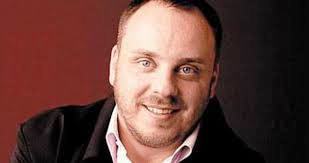|
Back
New York
David Geffen Auditorium, Lincoln Center
03/21/2019 - & March 22, 26*, 2019
Charles Ives: Central Park in the Dark< BR />
John Adams: The Wound-Dresser
Johannes Brahms: Symphony No. 1 in C Minor, Opus 68
Matthias Goerne (Baritone)
New York Philharmonic Orchestra, Jaap van Zweden (Conductor)

M. Goerne
“All music is what awakes within us/when we are reminded by the instruments/It is not the violins or the clarinets/It is not the beating of the drums/Nor the score of the baritone singing.../It is nearer and farther than they”
Walt Whitman, From Leaves of Grass
The Americanization of New York Philharmonic conductor Jaap van Zweden was of course evident in the two very American works which opened the Phil last night. But when he performed the Brahms First Symphony last night, Maestro Van Zweden became a conductor who seemed to have been a Yankee born and bred.
This was a Brahms which was unashamedly go-getting. The opening was pleasantly brisk, but hardly idiosyncratic. Yet while the tempos were comfortably on the lively side throughout this symphony, he never once thought of a rubato, he never paused after an orchestral climax. One would have been astonished to hear, say, the Vienna Phil or even the Berlin Phil taking the Brahms at such a matter-of-fact pace. Yet as Mr. Van Zweden moved on, one felt a refreshment, a kind of exhilaration as the conductor showed off Brahms’s entangling counterpoint, his tricky little Beethoven references (the opening of the Fifth, that maudlin–to my ears–Lutheran hymn tune of the Ninth).
With a lesser orchestra, one might found such a straightforward performance prosaic. But the Phil responds with such alacrity to the baton of Van Zweden that those lovely solos (First Chair violin and cello Frank Huang and Carter Brey) had a special charm. The finale, under the Maestro, could have been composed by Berlioz or John Philip Sousa. No, it wasn’t too fast at all, but after the introduction, the conductor let the majestic brass and strings do their stuff. No pauses, no retards, just a terrific set of explosions.
The first half started with the opposite sounds, in Charles Ives’ Central Park in the Dark. Then again, this was written for chamber orchestra and should be played in tiny room, not the arena-sized David Geffen Hall. The score is a thing of beauty, and a thing to be savored for a chosen few. Those whispering strings, the lonely flute and piano, all are preludes to a pair of orchestras growing wilder and wilder and then going back again.
Ives was living on Central Park West at the time, and he must have walked–or probably loped–on these paths, and the pictures grew in his mind. The genesis and death were in Mr. Van Zweden’s mind as well, but they didn’t quite broadcast out in Lincoln Center.
What tied the concert together was John Adams’ setting from the last verses of Walt Whitman’s The Wound-Dresser. Charles Ives knew the soldiers of the Civil War, Brahms wrote his First Symphony in the first year of the War. (And doubtless knew that Hamburg, his hometown, was thriving as an ally of the South).
John Adams knew neither, but he has orchestrated several Ives songs. And his love of the poem transcended the mood of Whitman’s military hospital. Living in San Francisco, Adams was so aware that friends who had AIDS were suffering the way Whitman’s patient were. And his music was a thing of utter beauty.
The Phil’s Artist-in-Residence, Matthias Goerne, did not have the particularly American voice which Adams needed for the 1988 premiere. But Mr. Goerne had something else, besides his faultless baritone. It was an understanding of the Whitman words. He could be oh so tender, he could be desolate, he could sing with a plainness that allowed the poetry to take place.
And in those last lines of love, embrace and how “a kiss dwells on these bearded lips”, the simplicity of Adams’ soft lines and Mr. Goerme’s voice were breathlessly beautiful.
John Adams is the one composer who understands how to turn simplicity into profoundness. He did it with the desolate words of Mrs. Klinghoffer in the last scene of The Death of Klinghoffer, and he did it here.
It was a memorable performance, and when I returned home and picked up Leaves of Grass, the Adams music floated behind the words.
Harry Rolnick
|